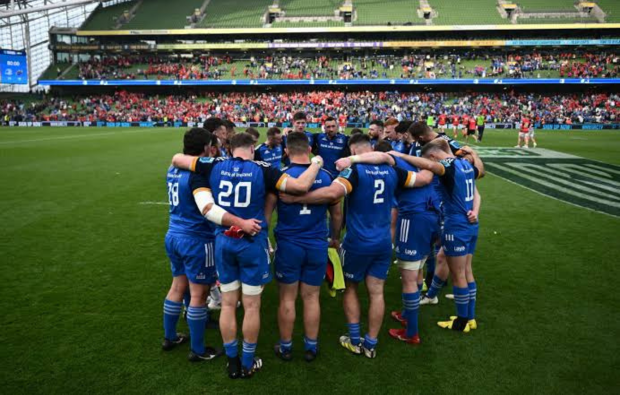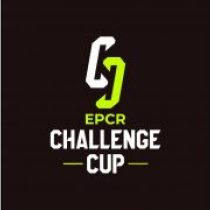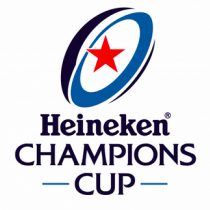Oval Insights: How the Champions Cup final will be won and lost
- 3510

Demonstrating the challenge of campaigning on two fronts, Heineken Champions Cup finalists Leinster and Stade Rochelais go into this weekend’s Grand Final on the back of losses.
You would hardly expect as much given their respective dominance in EPCR’s elite competition and in their domestic leagues: combined this season they have lost just 11 of their 60 fixtures.
However, both have huge pedigree in this competition, La Rochelle back-to-back champions and Leinster one of just two teams to have won four titles.
This weekend will not only be a contest between two wounded beasts, but also one between two titans on the biggest stage of club rugby. What separates the two teams?
Leinster Rugby
Leinster have lost only twice this season in all competitions – one of which was when they sent a young team to South Africa to face Vodacom Bulls. Their other loss was their last-gasp defeat to Munster Rugby in the BKT United Rugby Championship (URC) semi-finals last weekend. What lessons can Ronan O’Gara take from his alma mater going into this weekend?
Munster restricted Leinster to just 15 points – their third-lowest total this season – dominating both territory and possession. The men in red carried the ball 194 times, the most carries that Leinster have conceded in a league match this campaign.
This has been a point of policy for Munster this season, responsible for three of the four highest carry totals in the URC this season, but it’s one thing knowing what to expect and another stopping it. Will La Rochelle’s similar high-possession strategy pay dividends?
Leinster also like to hold onto the ball, seeing tangible benefits on the scoreboard from starving teams of possession. In attack, they have made the third-most carries per 80 minutes in the URC. When Leinster have been forced into making 150 tackles or more this season, they have scored an average of 30.6 points per match; when they’ve made 120 or fewer tackles, they’ve averaged 38.
However, toppling the four-time champions is not as simple as out-carrying them. Earlier in the season, Glasgow Warriors – who face RC Toulon in the EPCR Challenge Cup final on Friday night – waded into the Leinster defence a total of 157 times, but scored just five points.
Similarly, Dragons RFC made 155 carries against Leinster which amounted to just two converted tries. The difference between these and Munster’s historic performance last weekend was that Munster controlled the breakdown much more effectively, losing very few rucks.
Teams who’ve faced Leinster this season that have won 95% or fewer of their rucks have averaged fewer than 18 points, compared to 25.8 for those who managed a ball retention rate of 98% or over. To beat Leinster, you’ve got to be razor sharp in this area.
This bodes well for La Rochelle. They lead the TOP 14 for carries per 80 minutes, averaging 112.2. Less favourably, they have lost the third-most rucks lost per 80 in their league performances and have secured just 94% of their rucks this season. When La Rochelle have retained the ball at their own ruck more than 96% of the time, they have scored three more points per game.
However, lest us forget their profound ability to win turnovers in defence: they have averaged more turnovers won in the Heineken Champions Cup this season than any other team (9.6 per 80 minutes), with Grégory Alldritt and Levani Botia having won nine and eight respectively. Will this allow them to be faster and more loose with ball in hand?
A major battleground in this final will be how teams control the contact area in attack. La Rochelle certainly have the ability to hold onto the ball, however, they will need to step up their work at attacking rucks to really pressurize their opposition come the weekend.
Stade Rochelais
Like Leinster, La Rochelle are unbeaten in the Heineken Champions Cup this season. However, they have picked up nine losses in their league season, leaving them two points behind Toulouse in the TOP 14 table. Where teams have been able to attack them is their set piece, particularly their lineout.
The issue with their lineout is not their success rate – which at 84.5% is actually the joint-best in the league – or their ability to launch from this platform: they’ve scored 33 tries from lineout and 16 from the scrum. In fact, it is their dependence on their set piece to initiate their attack, which leaves them vulnerable when it is disrupted.
In the TOP 14 this season, La Rochelle have lost their own ball at the lineout four or more times on six occasions. In five of these matches, they have scored fewer than 20 points. In their other 18 fixtures, they have scored under 20 points just twice. The foundation of the French franchise’s attack is the dominance of their pack.
How practical is it to reduce La Rochelle’s lineouts? You could choose to not kick to touch, keeping the ball in play time high and the attacking opportunities low for the opposition. An added benefit of this strategy would be tiring the incumbent champions’ gargantuan pack.
However, the numbers tell us that the potency of La Rochelle’s strike plays is such that even very few opportunities can be enough to romp to victory. In matches where La Rochelle have had fewer than ten lineouts from which to attack, they have still scored an average of 30.2 points.
Leinster have a very tough tactical decision ahead of them. On the one hand, they could aim for touch, slow the game down and give themselves the opportunity to steal possession, risking being beaten by the quality of the La Rochelle set piece. Alternatively, they could keep the ball in play but gift their opposition the possession with which they often thrive.
However, Leinster’s Heineken Champions Cup performances this season show that they are more than capable of living with a high-tempo game. As for their counterparts, their ability to win back possession could prove crucial.
However these teams choose to adapt tactically this weekend, the climax of the Heineken Champions Cup season is set to be a sensational spectacle.
Despite performances when they have appeared invincible, both teams have identifiable weaknesses – the challenge is exploiting them.






















